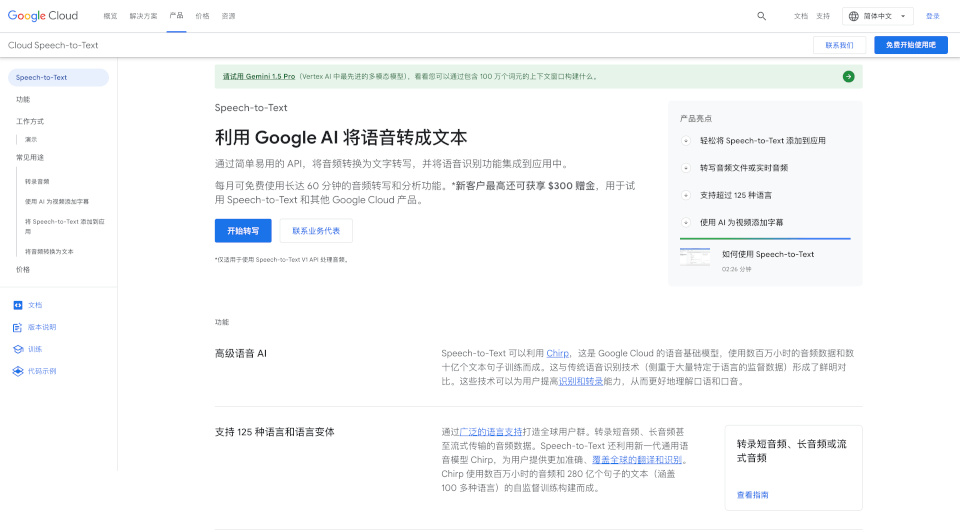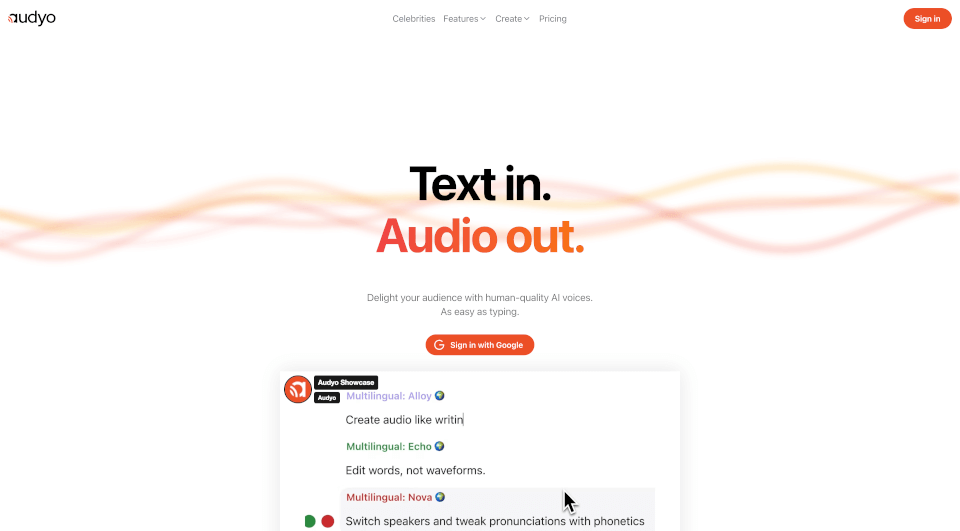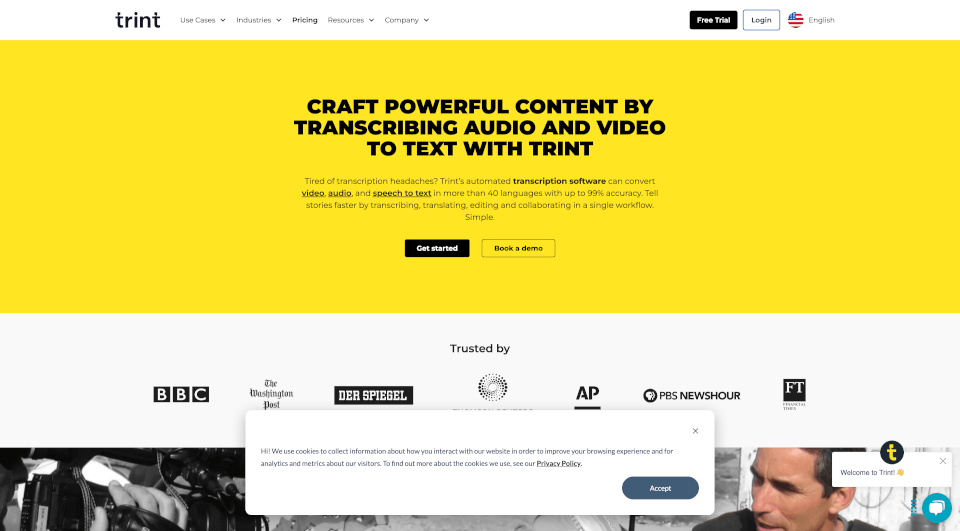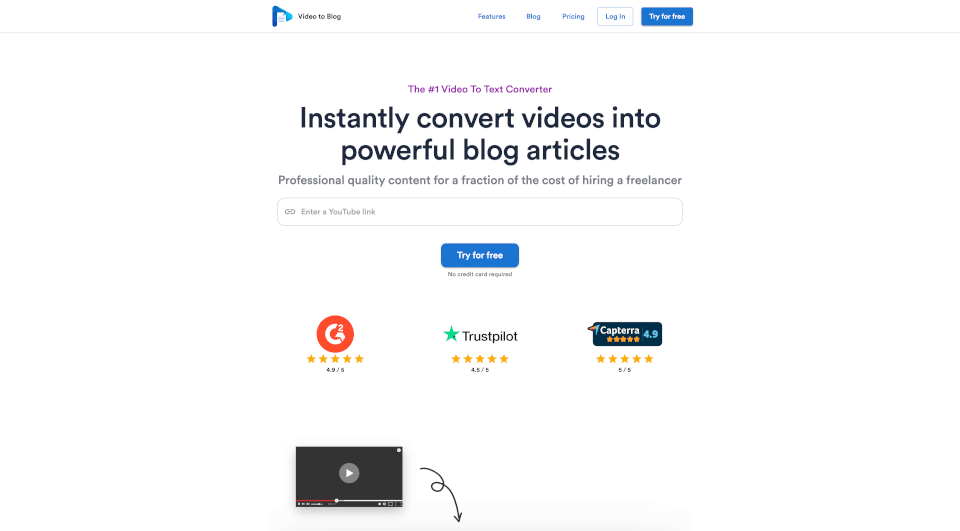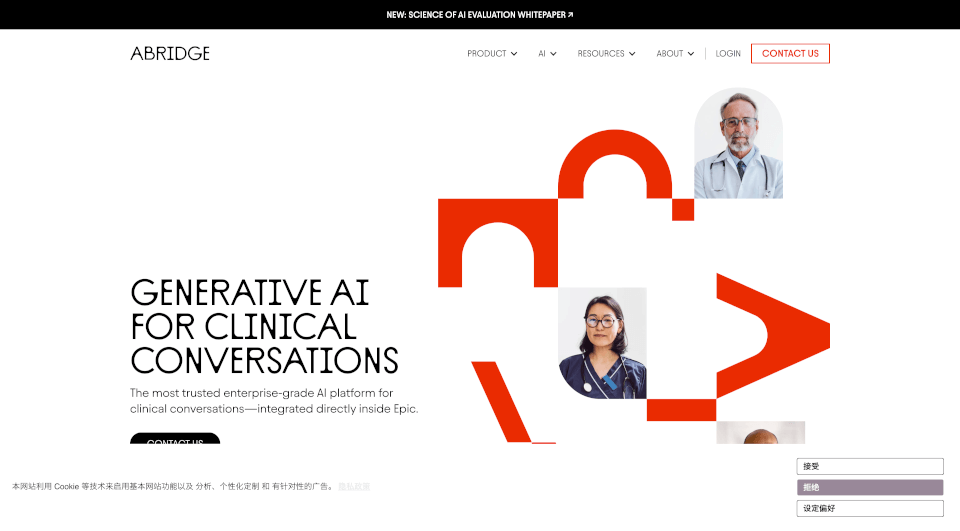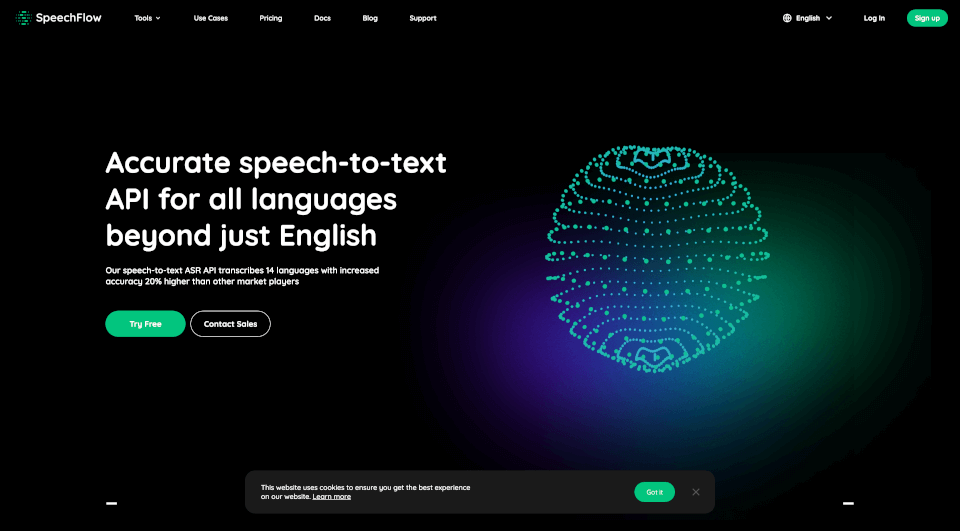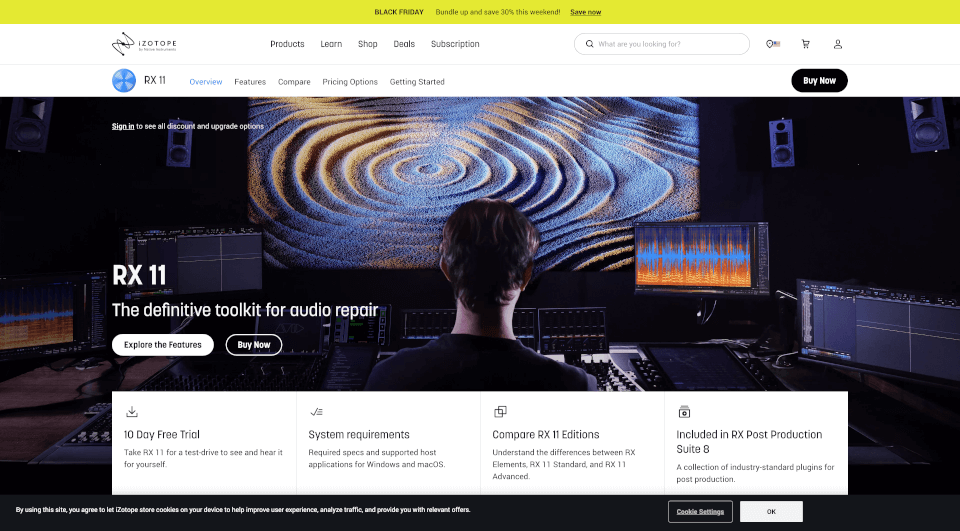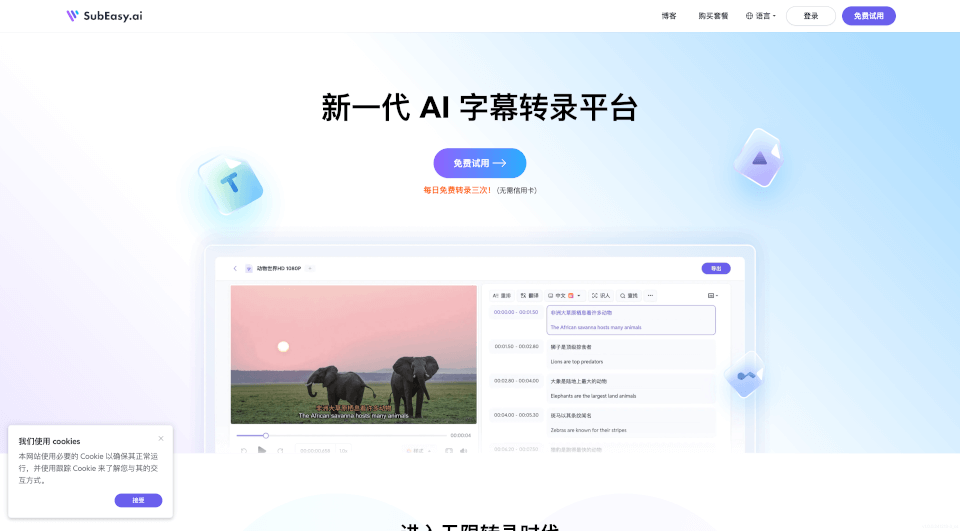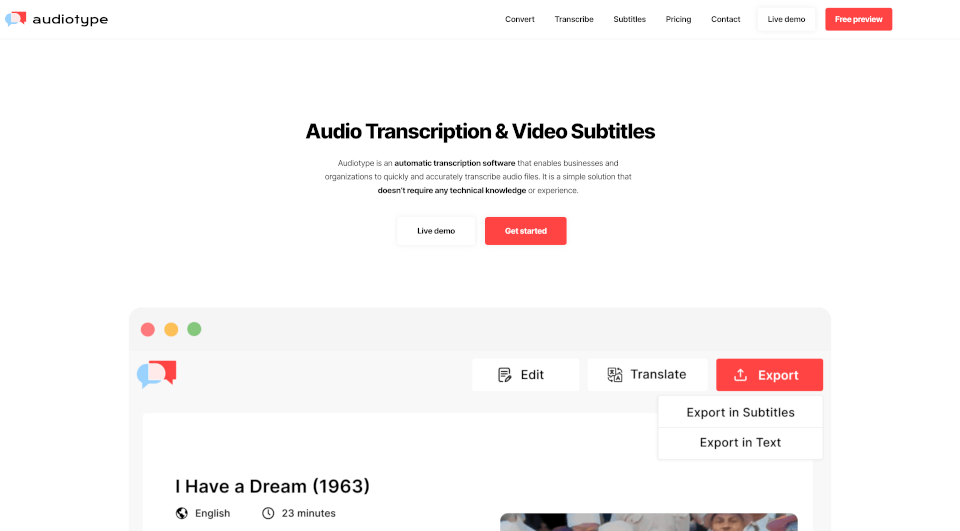What is Google Cloud Speech to Text?
Google Cloud's Speech-to-Text AI is a cutting-edge solution powered by advanced artificial intelligence, designed to accurately convert spoken language into written text across more than 125 languages. It utilizes innovative models that understand diverse accents and language nuances, making it an essential tool for applications in various sectors, such as education, technology, and customer service.
What are the features of Google Cloud Speech to Text?
The Speech-to-Text AI offers an impressive range of features:
-
Multi-Language Support: Compatible with over 125 different languages and dialects, Speech-to-Text AI ensures that businesses can operate on a global scale.
-
Real-Time Transcription: Users can transcribe audio as it is spoken, which is invaluable for live events, meetings, and customer interactions.
-
Adaptive Voice Recognition: The system employs machine learning capabilities, allowing it to improve its accuracy based on the context of conversations and specific user requirements.
-
Speaker Diarization: This advanced feature distinguishes between different speakers in a conversation, providing clear identification in transcriptions—ideal for meetings and interviews.
-
Noise Resilience: Speech-to-Text AI effectively handles noisy environments, maintaining accuracy even amid disruptions.
-
Custom Vocabulary: Users can introduce specific terms or phrases relevant to their industry, enhancing the accuracy of transcriptions.
-
Automatic Punctuation: This feature intelligently adds punctuation to transcribed text, helping to read and comprehend the finished product more easily.
What are the characteristics of Google Cloud Speech to Text?
The Speech-to-Text AI integrates seamlessly with various platforms and applications, making it an adaptable solution for diverse needs. Its design emphasizes security and compliance, providing enterprises with features that enable data privacy and protection. The product is built on powerful models that ensure high recognition rates through extensive training on vast datasets, making it robust for different use cases.
What are the use cases of Google Cloud Speech to Text?
Speech-to-Text AI can be employed across numerous industries, including:
-
Education: Teachers and students can create real-time transcripts during lectures, enabling better note-taking and accessibility for students with hearing impairments.
-
Customer Support: Companies can use the technology to transcribe customer interactions, enhancing service quality and creating a database of client feedback.
-
Media Production: Content creators can transcribe audio and video files to make content more searchable and indexable, which is crucial for SEO purposes.
-
Healthcare: Physicians can dictate notes during patient consultations, allowing for efficient record-keeping without the need for manual documentation.
-
Legal: In legal proceedings, real-time transcription is invaluable for creating accurate records of court hearings and depositions.
How to use Google Cloud Speech to Text?
To utilize Speech-to-Text AI, users can easily integrate it into their applications through Google Cloud's API. Here are some step-by-step instructions for setting up:
-
Sign Up for Google Cloud: Create an account and access the Google Cloud console.
-
Enable the Speech-to-Text API: Navigate to the APIs & Services dashboard and enable the Speech-to-Text API for your project.
-
Generate Credentials: Create the necessary credentials (API key or service account) to authenticate your application with the API.
-
Choose Your Language and Model: Decide on the language of the audio you will be transcribing, and opt for a pre-trained model or customize your own.
-
Input the Audio: Send the audio files either via direct upload or stream real-time audio using the provided SDKs.
-
Process the Output: Once transcribed, utilize the output text as per your application’s requirements, such as saving to a database or displaying on a user interface.
Google Cloud Speech to Text Pricing Information:
Pricing for Speech-to-Text AI is based on usage. V1 API costs about $0.024 per minute, while V2 API, which offers more features including data residency and enhanced accuracy, is priced around $0.016 per minute. New users can benefit from a $300 credit for experimenting with the service, along with 60 free audio minutes each month.
